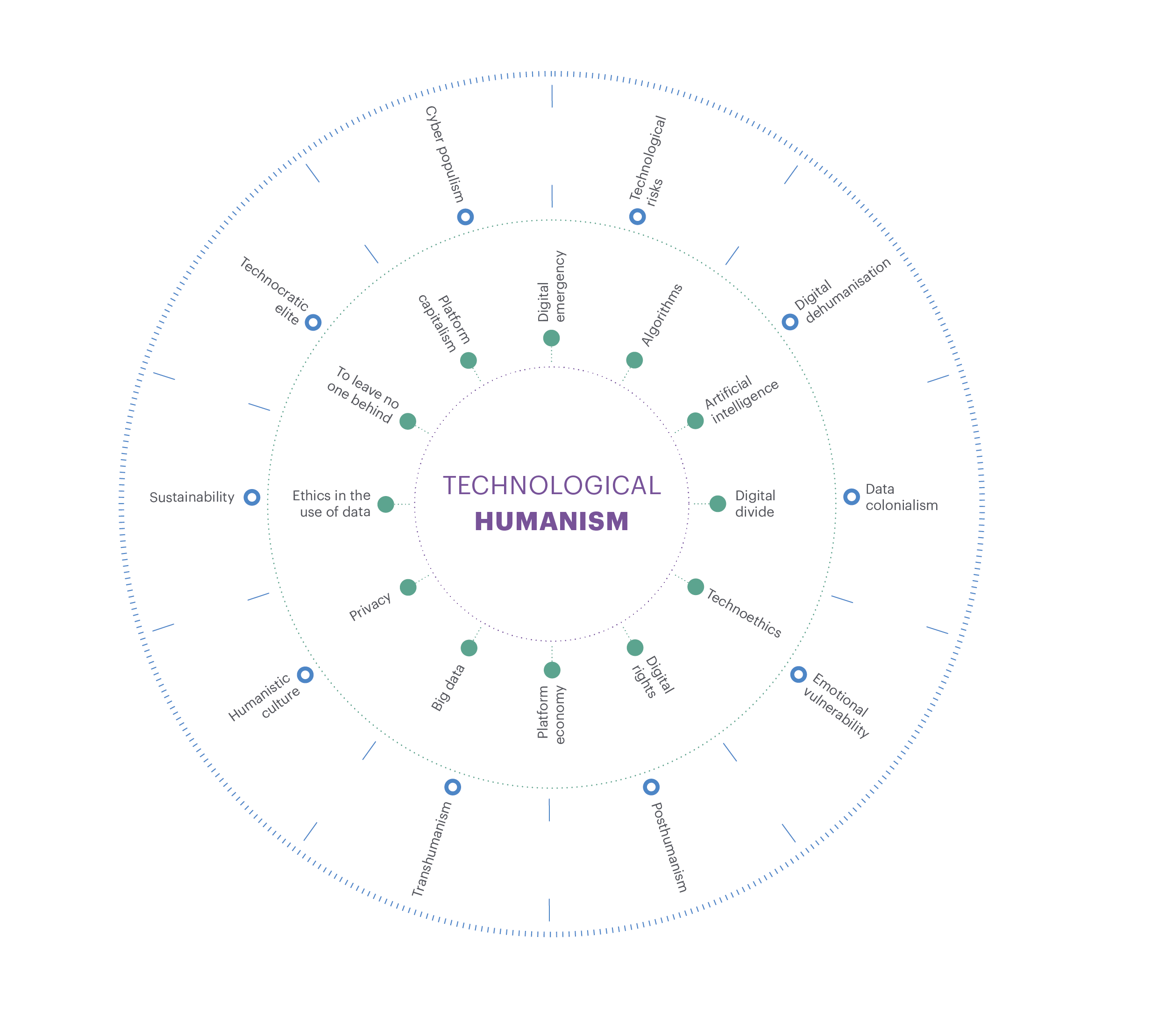It is hard to find a concrete definition shared by all its current champions. Perhaps it is this ambiguity that facilitates its use by a broad range of stakeholders in and across the political spectrum and in a variety of contexts. In general, the term is mostly used as an umbrella term to encapsulate a variety of issues and is frequently followed by the motto putting people at the centre of technological development and developing technology at the service of citizens.
The current use of the term points towards concerns arising from various technological developments, including the expansion of artificial intelligence, algorithms, the data economy, neurotechnology, and privacy breaches. In short, technological development could soon be beyond human control, mandating an affirmation that a technological humanism is needed that will place humans (and human control) at the core of technological development.
Download the whitepaper to learn more
The current use of the concept in Spain is closely associated with specific individuals from across the political spectrum. Jose María Lassalle, Secretary of State for the Digital Advancement of Spain in the Partido Popular (Popular Party) government from 2016 to 2018, and author of several books and articles on the topic was one of the first public figures to start using it in a significant way.
Another key promoter of technological humanism is Laia Bonet, Deputy Mayor of Barcelona for the 2030 Agenda, the Digital Transition, Sports, Territorial and Metropolitan Coordination, and member of the Partido de los Socialistas de Catalunya (Catalan Socialist Party).
Also, while debating the role of cities in dealing with global challenges at the Smart City Expo World Congress in November 2021, the Barcelona en Comú (Barcelona in Common) Mayor of Barcelona, Ada Colau, and Francesca Bria, President of the Italian Innovation Fund and Former Chief Digital Technology and Innovation Officer of the city of Barcelona discussed the role technological humanism can play in fostering a “technological, democratic and social agenda at the service of the common good as the way forward”.
Download the whitepaper to learn more
In the English language, technological humanism is not as widely used as the related concept digital humanism. Even if there is no easy translation, the rise of the concept of technological humanism in Spain and the discussion generated around the concerns encapsulated in the term, mirrors the rise of critical voices in other countries that are, with a sense of urgency, raising awareness of the risks related to current technological developments. Of all the exponential technologies, it is the expansion of artificial intelligence and certain applications, specifically the use of algorithms and automated decision-making systems, together with the vast financial power of the largest tech companies, and the rise of the data and attention economy across different spheres of our lives that have raised ethical questions and spurred critics to sound the alarm. This is illustrated by the significant body of academic literature, media reports, and initiatives relating to concerns over the impact technology is having on society. Digital surveillance, disinformation, and algorithmic injustice lie at the heart of many of the concerns expressed by critics.
Download the whitepaper to learn more



